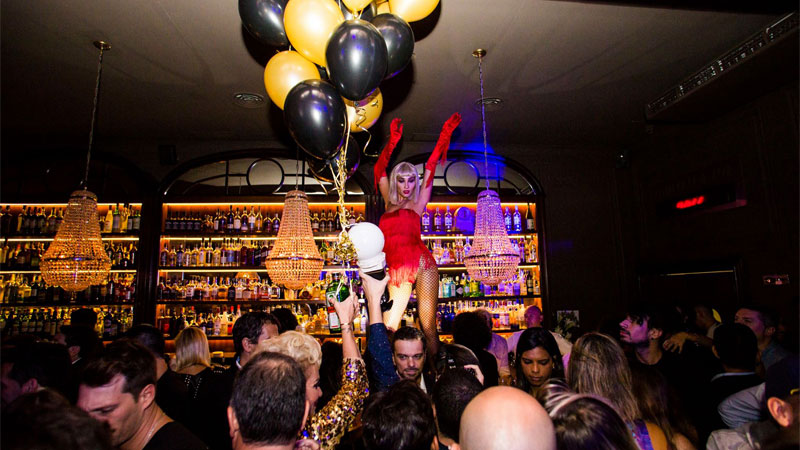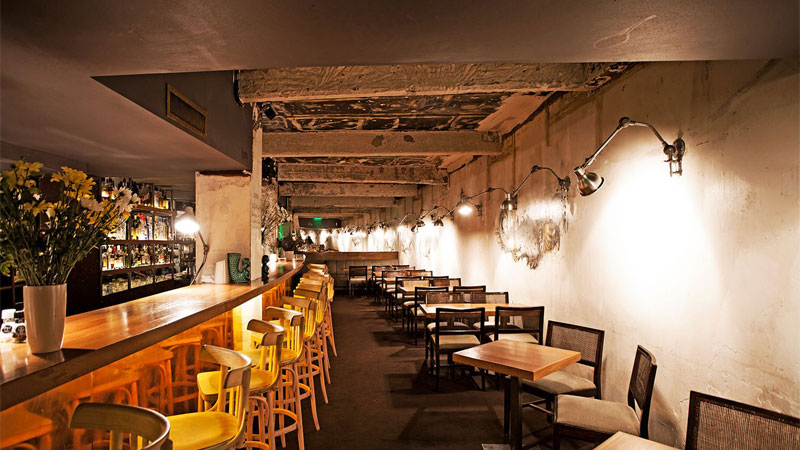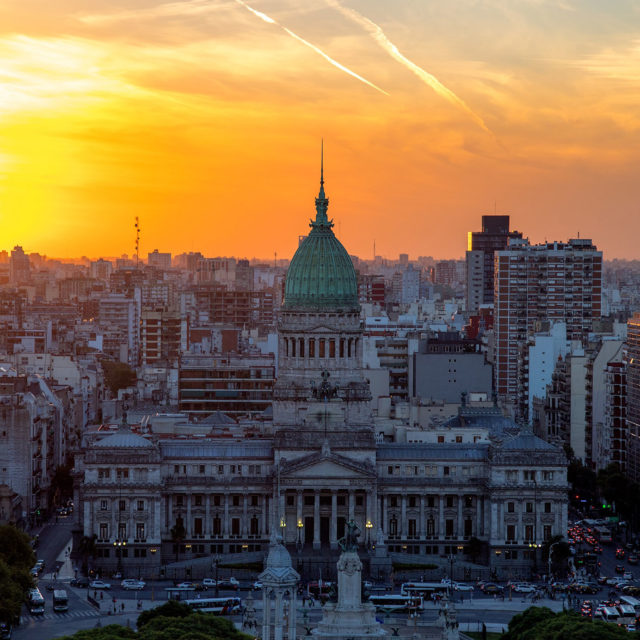Presidente Bar, in the Retiro neighborhood of Buenos Aires, Argentina, is as immaculate as its suited cantinero, or barman, Sebastian Garcia. He’s the creative director here, at the high-ceilinged bar with chandeliers hanging and the light low.
Behind the bar lies a speakeasy, which Garcia enters through a bookcase and makes lucky guests the drinks he’s currently obsessed with: like, say, the Gibson, something shockingly simple that nonetheless fits with the pomp of the place. It’s elegant, a classic — but there’s that hit of brine, giving you the feeling that something debauched could occur, despite the high-end atmosphere.
Buenos Aires’ cocktail scene revels in this dichotomy, combining smart, classic style with a bit of an edge at destinations like Presidente, Pony Line, and Florería Atlantico. Meanwhile, newer players like Boticario play with tiki concepts and elaborate presentations. At all the leading cocktail bars, what’s local — both in terms of ingredients and culture — is given priority.

The cocktail bar that first brought the city international attention was Florería Atlantico, opened in 2013 by Tato Giovannini, who’s gone on to launch Principe de los Apostoles gin, Giovannini vermouths, and even his own tonic water. The gin and vermouths are reflective of Argentina’s signature flavors; the former includes mate, the herbal tea that many in the country drink in lieu of coffee. Meanwhile, Giovannini dry vermouth showcases local herbs.
For Inés de Los Santos, who runs the bar program at Orilla, the city’s unique cocktail culture is a result of its history. “From the ’40s to ’60s, there were many cocktail bars and well-known bartenders,” she says. “Then the industry fell down until the late ’90s when it was reborn with Mundo Bizarro [now closed] and Gran Bar Danzon, which gathered the scene.”
That heyday she references was the time of Santiago Policastro, known as “Pichin,” who’s been called the “father of Latin American barmen.” He opened his bar, Pichin’s Bar, in Buenos Aires in 1949, but left for New York in 1955 after a military coup overthrew the government. His influence has been so strong that he inspired a bar in London called Galante. The cocktail he’s most famous for creating, Clarito, is a Martini variation that combines gin and dry vermouth, but with a sugar-and-lemon rim. The results are dry, floral, and herbal — with a bit of sweet fruit.
Now, a newly formed and tight-knit scene has worked to bring back the refinement and cocktail precision for which Policastro was world-famous. “We know each other and we work like a team,” says de Los Santos. “We share recipes, contacts, and even drinks.” That camaraderie was evident when I visited her bar and Mona Gallosi, a veteran bartender in the city, was popping up to showcase some of her drinks in collaboration with Johnnie Walker.

When I stopped into Presidente one evening in summer 2019, my table with Garcia was joined by bartenders from Atlantico and Pony Line — all friends, each sharing conversation about their current favorite cocktails, showing off Negroni tattoos, and plotting for the future.
“The last five years we started to have more communication with colleagues,” says Garcia, “and that” — to his mind — “made Buenos Aires the cocktail capital in Latin America.”
To Garcia, building the city’s cocktail culture has also been the product of educating guests. “The strength was achieved through bartenders understanding that by educating the consumer, we could go further,” he says. “You can have the cutest bar or with the best bottles, but if you don’t have educated clients, none of that can shine.”
Rare is the cocktail scene that boasts of its local products so strongly or deeply recognizes the intelligence of its guests. Whether you’re walking through a bookcase into a speakeasy or simply ordering a classic Martini, Buenos Aires delivers.
